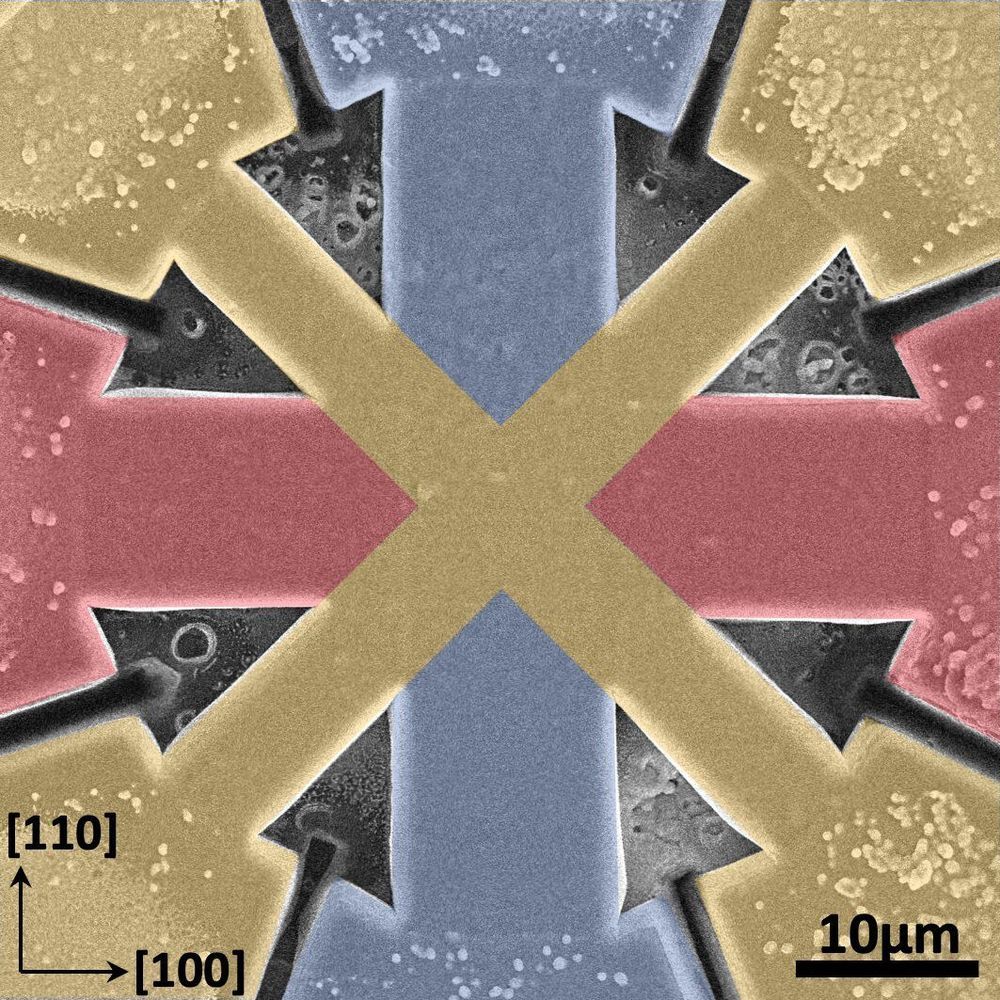Unlike the magnetic materials used to make a typical memory device, antiferromagnets won’t stick to your fridge. That’s because the magnetic spins in antiferromagnets are oppositely aligned and cancel each other out.
Scientists have long theorized that antiferromagnets have potential as materials for ultrafast stable memories. But no one could figure out how to manipulate their magnetization to read and write information in a memory device.
Now, a team of researchers at Berkeley Lab and UC Berkeley working in the Center for Novel Pathways to Quantum Coherence in Materials, an Energy Frontier Research Center funded by the U.S. Department of Energy, have developed an antiferromagnetic switch for computer memory and processing applications. Their findings, published in the journal Nature Materials, have implications for further miniaturizing computing devices and personal electronics without loss of performance.
